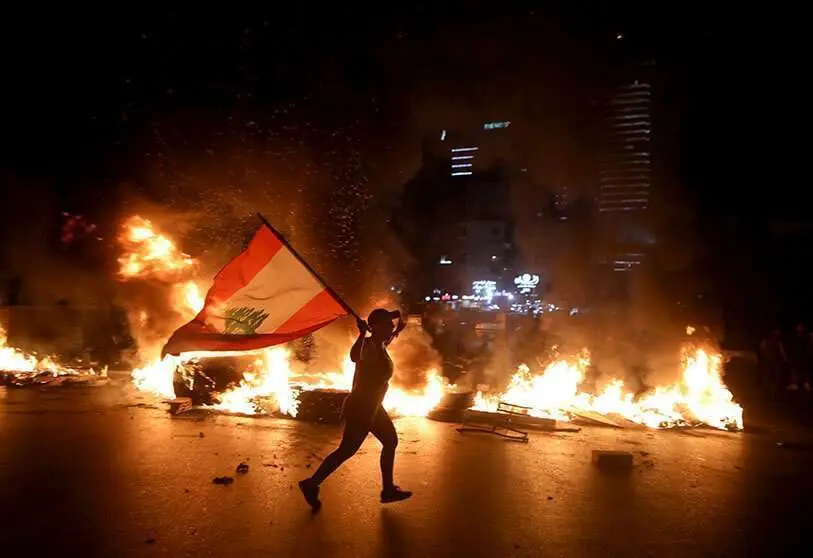Disaster in Lebanon

Lebanon is a frequent source of conflict, including a recent war, but it is now facing the most chaotic and dramatic situation in its entire contemporary history. All the circumstances it is going through are turning against its political, social and, at this time, especially economic stability. In a country where the standard of living is traditionally envied in the Middle East, three people committed suicide last Friday, warning that they were doing so out of hunger. There is no work and no future. The currency fell in a few weeks from 1,507 pounds to the dollar to 9,250. COVID-19 is exacerbating the situation.
No one sees a way out of the crisis. The institutional system based on religions coexisting in the territory - the Christian president, the Sunni prime minister and the president of the Shiite parliament - no longer works. The current prime minister, Hassan Diab, feels powerless to control the disaster, but his intentions to resign are stopped by the fear of the void it would create.
Hezbollah has been gaining more and more power, and its ties to Iran are leaving Lebanon increasingly isolated. All the countries in the Gulf area have turned their backs on it. The solution to the impending state bankruptcy envisages macro-credit from Saudi Arabia, but the government in Riyadh refuses as long as Iran is the only country with which it has good relations. There are many more problems that coincide, from Syria's neighbourhood to the Palestinian refugee camps and the ever-conflicting border with Israel. The disaster now becoming more serious has been brewing for a long time, from the civil war to the period when it was under Syrian rule.
Among the population, which in spite of religious divisions managed to live together in harmony for many years, the divisions have now multiplied. Analysts blame all evils on Hezbollah's fanaticism, which has managed to infiltrate all spheres of power and control public and private decisions. The president himself, Michel Aoun, whose powers are limited, relies on the support of Hezbollah, which has officials and forces of order in fear. Lebanon, which was an economic paradise where the money of oil millionaires was kept and invested, for the first time did not pay the term of its public debt.
A city as active as Beirut, which after the war had set an admirable example of reconstruction, now looks deplorable. Businesses are abandoned, even some banks are closed, and the image of hunger and misery portrayed by people lying on the sidewal is shocking. Corruption, which always prevailed, is now being combined with criminality on the streets. People suffering so badly are blaming the government, and in order to calm down the situation, ministers have announced their salaries are being cut by 50%. Experts agree that a new government is needed, but the President and the Prime Minister himself are avoiding such a change for fear of automatic formal assumption by Hezbollah.

